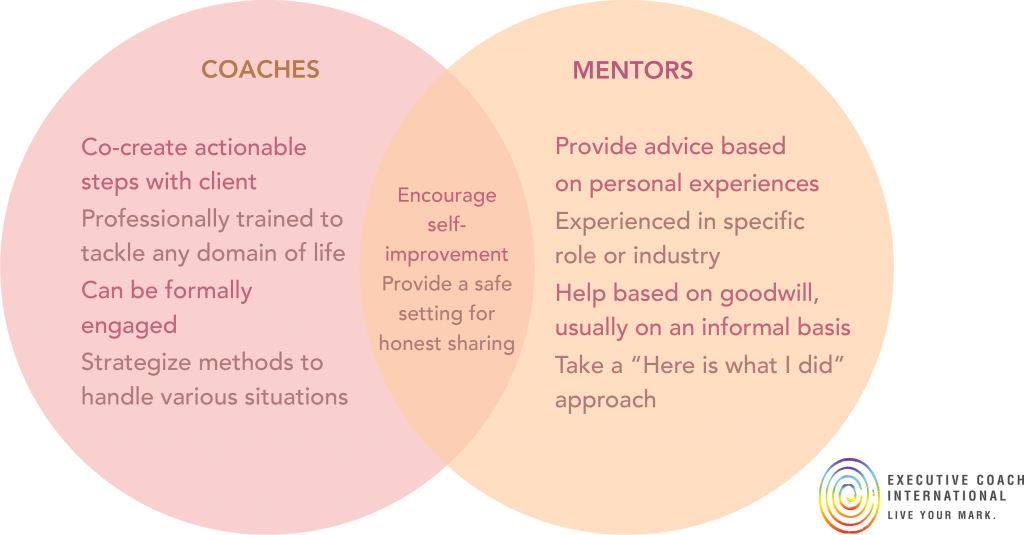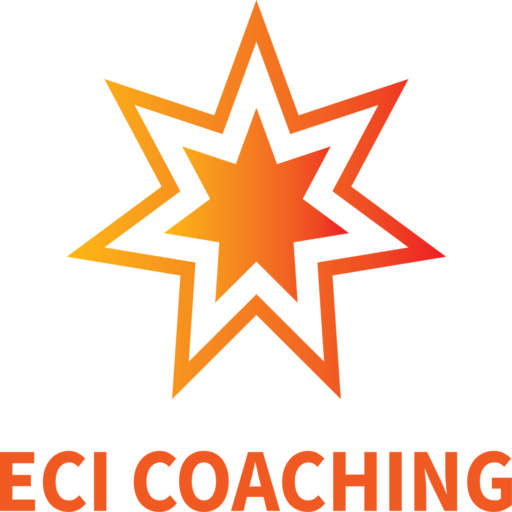Coaching Versus Mentoring – What’s The Difference?

Overview
A quick search on the internet shows many contradictory articles on this topic, though they largely agree on one very important point — that mentoring and coaching are quite different, despite some similarities.
Similarities
Both coaching and mentoring are learning relationships which aim to create positive outcomes in the lives of ‘coachees’ or mentees. Coaches and mentors also support people in setting goals, assessing the possible methods by which these objectives can be achieved and creating actionable steps for a person to follow. Both require strong interpersonal and communication skills to establish rapport and trust with those on the receiving end to elicit open and honest responses. Coaches and mentors alike endeavour to serve as inspirational role models to others.
Differences
Coaching focuses on empowering clients and holding them accountable for their own professional and personal development, whereas mentoring largely involves the mentor sharing his or her life experiences. Coaching is a professionally certifiable skill-set, where coaches spend hours on training and practice before receiving accreditation. Mentors use their own personal experience as their guiding tool rather than any formal training program. Normally, mentoring relies on the mentor’s goodwill in participation, while coaches can be engaged on the basis of a contractual agreement.
Contrary to popular belief, coaches do not tell their clients what to do. Perhaps some kinds of coaches (e.g. sports) do, in fact, provide top-down directives, but the methodologies outlined by the International Coach Federation (ICF) heavily discourage life coaches from advising their clients. Coaching is instead a partnership, where coaches ask their clients powerful, open-ended questions which can unlock the answers from deep within clients themselves.
On the other hand, mentors are usually older and more experienced in the specific role or field and are thus seen to hold the more senior position in the mentor-mentee relationship. They also possess industry contacts and may be able to help open doors for the person being mentored. Mentees thus tend to defer more to their mentor’s counsel though, as with coaching, they are still free to choose what to do with the insights they receive.
Mentoring is about using a proven method that worked for one person and applying it to another. While it might work, the results differ from person to person, and thus may not be the best solution. However, mentors provide very specific knowledge for jobs that not all life coaches are equipped with, which could be more helpful to mentees under particular circumstances that require technical know-how. Mentoring therefore tends towards more short-term outcomes unlike coaching, which helps clients create their own unique approaches that can be applied to different situations in the future.
Coaching also covers a wider spectrum in developing all the different domains in life, including personal relationships as well as finding purpose and direction, which may not be something that all mentors are comfortable speaking about with another industry professional. In fact, accredited life coaches are trained to be able to handle any issue (professional or otherwise) that a client may wish to discuss.
Thus, coaching is a more formal relationship where coaches collaborate with clients in discovering more about themselves, equipping them with new competencies to help them take action and move forward to their goals for life. Mentoring is more informal in nature in that mentors usually volunteer their time and resources with someone more junior in the industry whom they are happy to dispense advice to (based on their personal experiences), to help the recipient achieve their goals. Both coaching and mentoring have their own merits, and a proper understanding of their differences could help make the right choice for the needs of you and your organization.
Find out more about life coaching and how it can help you develop your fullest potential here!

